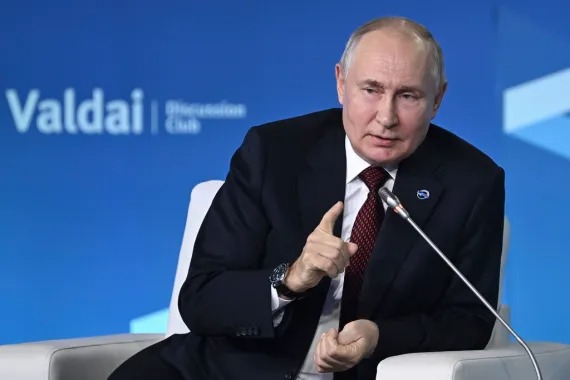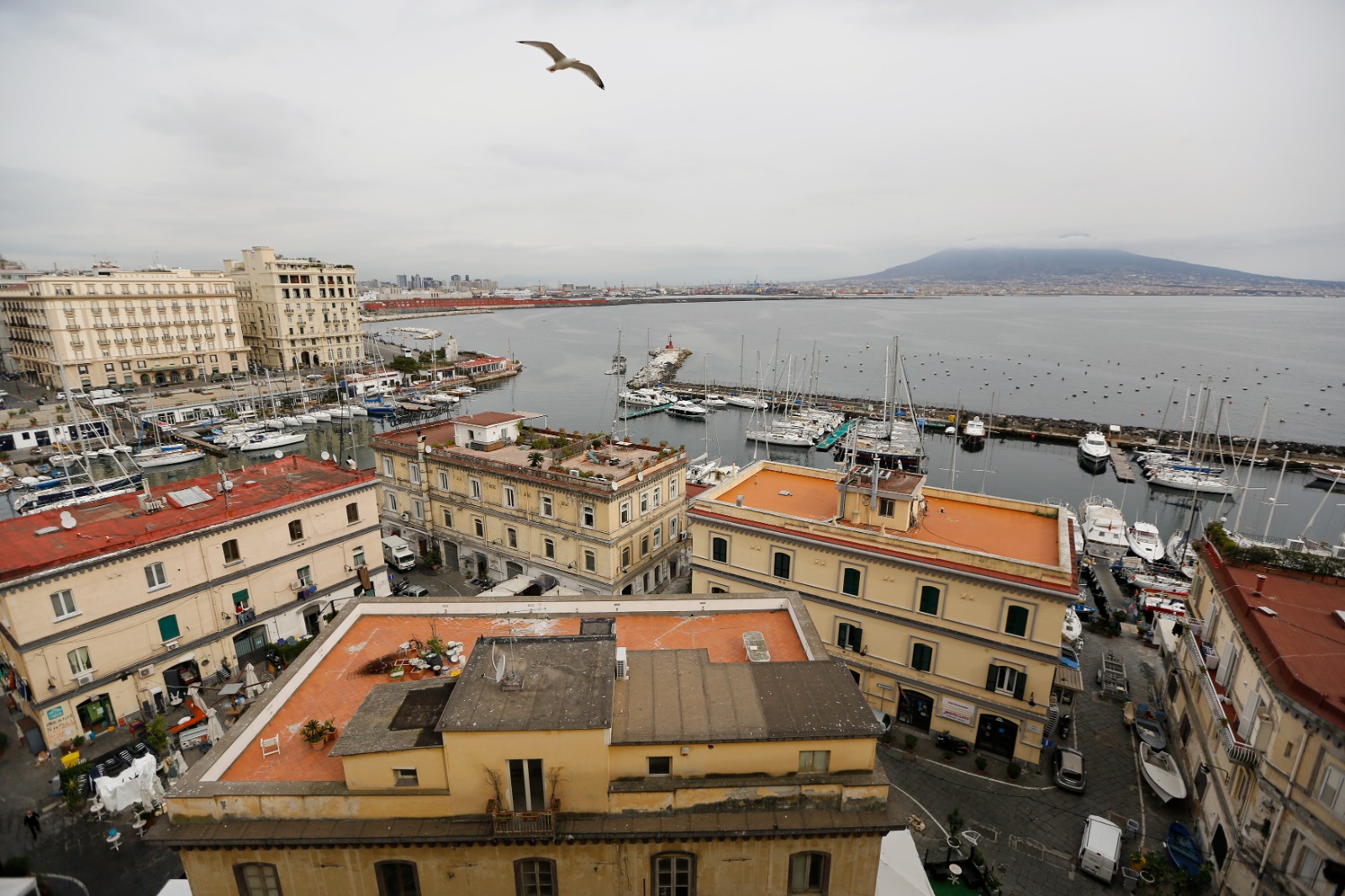Russian President Vladimir Putin has issued a dire warning that Ukraine’s existence teeters on the brink, asserting that it would crumble within a mere week if Western military and financial support were to abruptly cease. This alarming statement comes amidst growing concerns surrounding the future of U.S. funding for Ukraine, exacerbated by political turmoil in Washington. Putin’s remarks coincided with a European Union official’s stark declaration that the EU cannot fully replace the funding gap should U.S. support for Kyiv diminish.
Putin’s Stark Warning
Putin’s startling pronouncement regarding Ukraine’s reliance on Western assistance was made during a gathering at the Valdai Discussion Club, a Moscow-based think tank. He asserted that Ukraine’s sustenance was, in large part, due to the “multi-billion donations that come each month” from the West. In a grim prediction, Putin asserted, “If one just stops, it will all die in a week.” He further emphasized the critical role of Western support in Ukraine’s defense, highlighting that without it, the nation would run out of ammunition within the same short timeframe.
EU Concedes Inability to Fill U.S. Void
While European leaders grapple with the growing threat to Ukraine’s stability, EU foreign policy chief Josep Borrell delivered a sobering assessment during a European Political Community (EPC) meeting in Spain. Borrell conceded that the European Union could not effectively replace the United States as Kyiv’s primary donor. This admission underscores the magnitude of the crisis brewing in Ukraine and the pivotal role played by Western nations in its fight against Russia.
U.S. Funding Uncertainty Amidst Political Turmoil
The U.S. has been a cornerstone of support for Ukraine, with commitments totaling $43 billion in military assistance and a staggering $113 billion approved by Congress, encompassing humanitarian aid. However, the specter of uncertainty looms over these pledges as political turmoil in Washington threatens to disrupt vital funding. A weekend deal struck with opposition Republicans to prevent a government shutdown has temporarily halted new U.S. funding for Ukraine, prompting concerns about the nation’s precarious position.
Putin’s Strategy
Putin’s recent statements align with a broader strategy of weakening Western support for Ukraine. Experts suggest that he is banking on NATO and the U.S. wavering in their commitment to the beleaguered nation, with recent events in the U.S. Congress playing directly into his hands. Jim Dubik, a senior fellow at the Institute for the Study of War (ISW), commented that by reducing aid to Ukraine, Congress inadvertently supports Putin’s desire to divide the alliance, which falls short of the strategic leadership expected from the United States on the global stage.
Ukraine’s Resilience Amidst Political Storms
Ukrainian President Volodymyr Zelenskyy, addressing European leaders at the EPC summit, expressed his concerns regarding Washington’s “political storms” but remained confident that bipartisan support in the U.S. was still intact. Leaders at the summit shared a common understanding that Putin’s strategy relies on Western fatigue with long-term support for Ukraine, presenting him with a path to victory. French President Emmanuel Macron pledged “tireless” support for Ukraine, echoing the sentiment that steadfast aid is imperative.
Fissures within the EU
Despite the resolute stance of some European leaders, divisions within the EU are becoming increasingly apparent. Slovakia’s decision to freeze military aid to Ukraine following parliamentary elections underscores these fissures. The victory of former Prime Minister Robert Fico’s SMER-SSD party, which campaigned on ending military support for Ukraine and sanctions on Russia, signals a potential shift in regional dynamics.
As the geopolitical landscape continues to evolve, the fate of Ukraine remains uncertain. Putin’s warnings have served as a stark reminder of the nation’s dependence on Western support, raising critical questions about the future of this embattled nation in the face of political turbulence and shifting alliances.
















